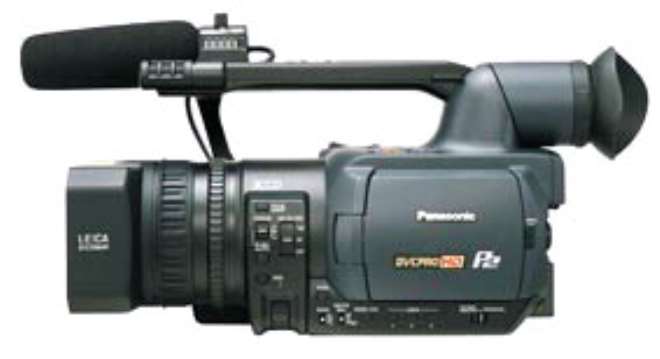Cameras roll for Nigeria in the Movie project
Nollywood redefines Nigeria's global rating in the movies advertisement
The Minister of Information and National Orientation, Mr. Frank Nweke Jr. just returned from Hollywood with a crème of the Nigerian movie industry, where he was given an opportunity to saloon the wares of Nollywood, a generic entrapment of the country's movie industry.
As in the Cannes Film Festival early in the year, the Nigerian movie industry is beginning to receive some generous reference and respect of one of the most productive in the world, falling behind just only America's Hollywood and Indian's Bollywood.
Forget about form, forget about video and forget about celluloid, the real thing is the product and Nigeria has been able to spearhead a revolution to ensure that digital video becomes key in the medium of capturing products than the traditional technologies promoted by Hollywood and Bollywood
However, the reality is that Nollywood was envisioned by the private sector, driven by the private sector and has continued to keep the industry going in spite of obstacles on the part of raising money for business. This flies in the face of developments in other parts of the world where the government tries to boost the film industry and still keep it in the firm control of the private sector.
The American government protects Hollywood and has never been ready to go into any negotiations that would affect the fortunes of Hollwood. Indian government is protective of Bollywood and wouldn't be prepared to let it go. Just the same way, France is protective of Cannes Film Festival which brings the world's movie makers together, as Burkina Faso is jealously protective of FESPACO, the biggest film festival in the continent and one of the biggest in the world. In all cases the movie remains the medium of communication and dialogue between people and government, and also remains the object of protective jealousy.
It is perhaps to give birth to this interface and interaction between government and industry that the country is today witnessing an epochal development captured as Nigeria in the Movie. In years to come the President, Chief Olusegun Obasanjo will reflect and behold it as the brightest projects of his administration. The product is the brainwork of a particularly functional parastatal of government, the Nigerian Film and Video Censor's Board, NFVCB, which for years remained in the mire of dispute, and plagued by diffused vision of what should be a very rambunctious sector.
Luckily the parastatal which is a content regulator for home and broadcast, has found a content connoisseur in the Director General, Mr. Emeka Mba, who is ready to go the last mile to ensure that Nigeria remains a major player in the purity and quality of products the industry pushes out to the people and the global community.
Nigeria in the Movie is the result of comprehensive dialogue between the industry, some organs of government and the private sector and the details of product are intended to profit the industry, government and the Nigerian people.
A knowledgeable broadcaster, having played at the highest level of Digital Satellite TV, DSTV, operations, his hold is that the industry can be a better place of business; it can be made richer, operators can benefit more while the country will be the ultimate beneficiary through positive communications by the operators.
What the project is all about
In the project website, www.nigeriainthemovies.com, Mr. Mba explained: “WHAT IS NIM? Nigeria in the Movies (NIM) project is an initiative of the National Film & Video Censors Board which is geared towards redefining the identity, influence, character and image of the country. We have, based on experience, come to the conclusion that effective censorship begins from the ability of the regulator to affect the mind and thinking of the creative artist even before his work is made available for public appreciation. The process of bringing this about depends on the creative capacity of the regulator. Indeed, it is important for us as a regulator that we affect the thinking and operational paradigm in the industry so that invariably, the practitioners will begin to share in the values that uphold our statutory mandate.”
But at a press meet to explain the nature of his project, Mba remarked that it was clearly exigent for a project like this to be born now in order to create a new direction that captures the dreams and aspiration of the operators and give the country some repute at the global level.
“Confronted with the enormous possibilities inherent in the movie industry in Nigeria, and put side by side with the low quality output, indeed sometimes, atrocious content in the market, the National Film and Video Censors Board, NFVCB, had come up with a definitive, flagship programme that captures the dreams, vision, and aspirations of Nigerians in and outside of the industry,” Mba pointed out.
While doing good business, Mba's feeling is that the country should appropriate all the benefits and advantages of the sector to propel the nation forward. According to Price Waterhouse Coopers, PWC, global projected returns of the film industry is $600bn by 2010, while Nigeria, according to Leke Alder, in 2005 raked in $4bn, an amount that may multiply in the years ahead, if all tracks of the sector are perfectly structured and given a definition by the relevant authorities.
If Nigerians didn't see these qualities that could build the film sector into a mega business like electronics have done for Japan and Hollywood for America, the Censors Board is removing the blinkers from our eyes to behold an industry which, apart from oil and football, remains an enigmatic product that Nigeria can rule the rest of the world.
Facts backing the project
Here are the results of a research finding by the Board to demonstrate that time is ripe for the project:
•Population: over 140m.
•Highest number of TV/VCR penetration in Africa of 44 million TVH
•Most active media/broadcast sector with over 100 TV Radio stations
•The 3rd largest movie producing nation after India and Hollywood. 2080 movies produced, & 1680 approved in 2005.
•By the middle of 2007 the Nigerian cinema landscape would have changed dramatically with the launch of 50 ultra modern multiplex cinemas across the country.
•The Nigerian entertainment market is clearly deeper than what the available product windows can adequately address.
•With 55 per cent of Nigeria's 140 million population being accounted by youths it requires no extra effort to see that the entertainment industry stands a great future.
•Over 200,000 video clubs spread over Nigeria: (source, VCOAN, VROAN, NFVCB)
According to Mba, “These represent the platforms and planks of operation under which the National Film And Video Censors Board is driving the change paradigm in the industry. They represent a new thinking, an ambitious project that opens and sustains clear and strategic growth of the economy and the industry along the parameters set by the NEEDS document and the MDG goals.”
The New Distribution Framework: We have already published the Expressions of Interest in the national dailies, and had one of three legged stakeholder interactive on this in Lagos. The other two will come up in Kano and Enugu. This is arising out of the need to restructure the distribution framework in line with our statutory mandate to arrest the drift in that area and ensure that operations become more formal, structured in such a way as to lend itself to basic auditing standards, generate transparent performance records, and be able to establish synergy with other sectors of the economy. There is enormous excitement in the industry arising from this. We have set a target for ourselves to be through with all these processes of bidding and nominating the consultant for this initiative very soon. The hitherto dead cinema viewing culture in Nigeria is regaining vibrancy and confidence. In the next one year, about 50 more cinema multiplexes will be opened across the country. It is necessary that as the regulatory agency, that the Board thinks, and acts ahead of these developments by putting in place a structure of distribution and exhibition framework that ensures sustainability, good return on investment and guarantees optimal values for consumers and the government.
Media Literacy Campaign: With the realization that young children depend on the influence of media content for decisions and choices they make, and given the sophisticated, subtle and often perverse contents of movies, we consider it necessary to initiate a process of educating the youths on the nature and attributes of the media so as to ensure that they become more critical and dispassionate consumers of media content. Essentially, the idea is to get the youths to understand that media contents are constructs and not a reality. Already, a board of highly experienced scholars has been appointed to develop the scope of work and strategies of delivering it to the targeted schools. The objective of this is to initiate a process of behaviour change communication for consumers of media content, particularly, the youths. A few of the manuals and brochure for this campaign have been designed and printed.
Nollywood International Road Shows: The Nollywood International Road Shows are set as strategic global marketing window for Nigeria. It is an ingenious way of opening a new and refreshing view of Nigeria in the international arena, of creating a further window of investment into the movie sector and utilizing the opportunity of the Road Shows to grow the confidence of the Nollywood players, and snapping necessary opportunities to post a Nigerian tourism site or calendar in the international transactional mainstream. The targeted Road Show destinations are United Kingdom, South Africa, USA, Ireland, Brazil, and Jamaica. Inherent in this particular programme is a further deepening of the Heart of Africa Project, which makes it compelling for us to request government's adoption of the Nollywood International Road Shows as an integral part of the Heart of Africa Project.
Nollywood Interactive: Following the technical deficiencies observable in the Nollywood movie products, a development that is often blamed on the lack of access to institutional facilities for producers, the Board undertakes to mediate between producers and custodians of strategic public institutions so as to engender shared values between both parties and in the process break all barriers to technical proficiency in movie products. It is the conviction of the Board that by charting the platform that brings together Nollywood players and agencies of government, a better approach to how each can advance the visions of the other and deepen the grounds of mutual benefits between them, is guaranteed. That way, credibility and authenticity of the movie products in Nollywood becomes a visible attribute of the industry. Film Production Grant Initiative:
This initiative is among the immediate strategic industry steps developed by the Board to ginger the creative ingenuity of the industry to a new level. In this vein, a call for entries are made in different categories, to be scrutinized and judged by a panel of industry professionals and academics before a winner is determined and announced. The winning prize-money are in categories ranging from Five Hundred Thousand [=N=500,000] to Two Million Naira [=N= 2,000,000 ] At the moment, consultations with our sister agency, Nigerian Film Corporation, is going on to see if they could adopt the project and administer to the good of the industry.
Why the project needs support
No doubt, Nigeria in the Movies Project is yet the most profound government intervention to seize the initiative of the movie industry and dress it up for country and industry operators. Although nearly belated, the efforts of the Censors Board should be commended and Information Ministry should also be praise for its new thinking.
The movie industry is not just a money spinner alone, it can form a potent medium for a country's foreign policy as America has done in the field of technology and weaponry, as India has done in the area of culture while for Nigeria, there has really been no focus, no direction, as nobody was ready to be in charge. Even when the Nigerian movie sector has created jobs for millions of youths who ordinarily would have been vagrants on the streets, no so much boldness was shown in appropriating the benefits for the country's overall growth.
Actively supported by the parent Ministry, the Censors Board has stepped forward to provide leadership in the sector. The Board, at BOBTV Conference early in the year, also announced an intervention funds for the industry which now has been expanded under Nigeria in the Movie Project. The way development happens in the industry is for corporate organizations to support the vision by growing the fund make our movie makers global players in the industry.
Nigeria can boast of the best in the movie industry. Mr. Kenneth Nnebue who reinvented the Nigerian Video and almost single-handedly built into an industry is a Nigerian. Newton Aduaka, an international multi award winner is a Nigerian, and so are Amaka Igwe, Tunde Kelani, the Amatas and the Ejiro brothers, among others.
Nigeria is the birthplace of Richard Mofe Damio, RMD, Genevieve Nnaji, Omotola Jolade-Ekeinde, Joke Silva and husband, Olu Jacobs, Pete Edochie and host of other stars that are fast becoming global personalities.
What used to happen in the past is that regulators and industry supervisory parastatals contended for star positions with movie makers. With the launch of Nigerian in the movies today, the NFVCB is saying no, that is not the way the game is played. The movie makers can be players and stars more luminary than ever. This is a bold step that needs not only be praised but given full vent and support by all stakeholders. Should this happen Nigerians will no more be talking about voodoos in our movies but a much deserved victory in global industry awards.
Latest News
-
 "If You're For Me, I Am For You" - Cubana Chief P
"If You're For Me, I Am For You" - Cubana Chief P -
 "3 Days To Go" - Femi Adebayo Urges Fans To Get S
"3 Days To Go" - Femi Adebayo Urges Fans To Get S -
 "Stop Asking Me Questions About Speed Darlington"
"Stop Asking Me Questions About Speed Darlington" -
 "Benue Is The Most Underdeveloped State I've Ever
"Benue Is The Most Underdeveloped State I've Ever -
 Stan Alieke Urges Young Professionals To Take Lin
Stan Alieke Urges Young Professionals To Take Lin -
 Chizzy Alichi Teases Fans With Baby Reveal, Promot
Chizzy Alichi Teases Fans With Baby Reveal, Promot -
 "I'm Not Wearing Makeup From July 4th Till Decemb
"I'm Not Wearing Makeup From July 4th Till Decemb -
 "Stop The Challenge Of Mocking Kids With Down Syn
"Stop The Challenge Of Mocking Kids With Down Syn -
 Regina Daniels Celebrates Sons As They Mark Birthd
Regina Daniels Celebrates Sons As They Mark Birthd -
 Speed Darlington Threatens To Sue NAPTIP For Defam
Speed Darlington Threatens To Sue NAPTIP For Defam














